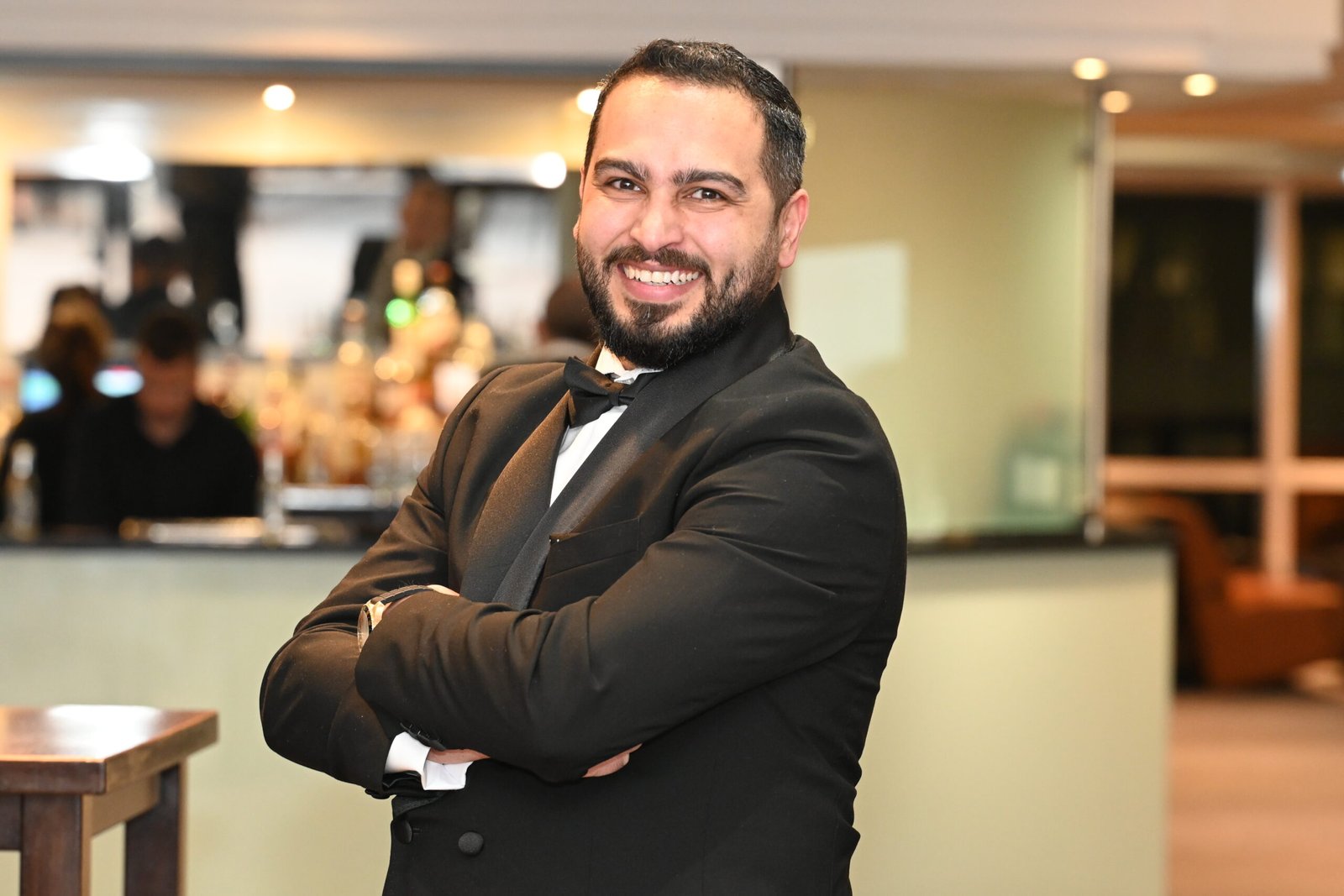
The landscape of cosmetic surgery varies widely between countries due to differences in healthcare systems, patient expectations, and socioeconomic factors. Dr. Sherif Elamari, a highly experienced cosmetic and reconstructive surgeon, has an extensive background in performing surgeries in both the UK and Egypt. This article explores key differences between operating in these two countries, drawing insights from Dr. Elamari’s experience and expertise.
Patient Demographics and Expectations
One of the primary differences between performing cosmetic surgery in the UK and Egypt is the patient demographic. In the UK, the demand for cosmetic procedures often skews towards middle-aged individuals seeking anti-aging treatments, such as facelifts, blepharoplasty, and non-surgical interventions like Botox and fillers. The emphasis is typically on achieving natural, subtle enhancements that align with a conservative aesthetic culture.
In Egypt, the demand for cosmetic procedures is diverse, ranging from younger individuals in their 20s and 30s to older patients. The cultural perception of beauty in Egypt tends to favour more noticeable changes, with a significant interest in body contouring, rhinoplasty, and other procedures that result in more dramatic alterations such as barriatric surgery post weight loss. Patients often look for results that reflect popular beauty standards influenced by both Western and Middle Eastern aesthetics. This difference in expectation requires a tailored approach, where surgeons must understand and respect the cultural nuances of beauty in both regions.
Healthcare Systems and Accessibility
The healthcare systems in the UK and Egypt have a considerable impact on how cosmetic surgeries are performed and accessed. In the UK, cosmetic surgery is predominantly carried out in private clinics rather than public hospitals. Patients often choose private practices, like those operated by Dr. Elamari, to ensure they receive bespoke, patient-centred care. The UK’s stringent regulatory environment ensures high standards for surgical facilities, requiring clinics to be accredited by organisations like the Care Quality Commission (CQC). This creates a landscape where patient safety is paramount, and the quality of care is consistent.
Conversely, in Egypt, there is a mix of private clinics and public hospital services available for cosmetic surgeries. While private practices cater to individuals seeking premium, personalised care, public hospitals may offer more affordable options. However, there is often a disparity in the quality of services, depending on the facility and its location. Surgeons in Egypt, like Dr. Elamari, who hold international qualifications and have trained abroad, bring a level of expertise that elevates the standard of care in their private practices, appealing to patients who are willing to pay for higher-quality, Western-standard procedures.
Cost of Procedures
The cost of cosmetic surgery varies significantly between the UK and Egypt, influenced by local economic conditions, cost of living, and healthcare infrastructure. In the UK, the costs of procedures are generally higher, reflecting the robust regulatory requirements, high operational costs, and the premium nature of cosmetic surgery services. A blepharoplasty, for example, can range from £3,000 to £5,000 in the UK, influenced by the surgeon’s expertise, location, and clinic facilities.
In Egypt, the same procedure might be priced at a fraction of this cost, ranging from £1,000 to £2,000. The lower cost in Egypt can be attributed to lower overheads, reduced regulatory burdens, and the overall economic environment. This price difference has made Egypt a popular destination for medical tourism, attracting international patients looking for quality cosmetic procedures at more affordable rates. UK clinics with their emphasis on international standards, benefits from this trend by offering services that appeal to both local and international clientele seeking reliable, cost-effective treatments.
Regulatory Environment and Professional Standards
The UK has a highly regulated environment for cosmetic surgery, with organisations like the General Medical Council (GMC) and the Royal College of Surgeons setting stringent guidelines for practitioners. Surgeons must be licensed, and clinics are regularly inspected to ensure compliance with safety standards. This regulatory framework fosters a high level of patient trust and confidence in the surgical process, ensuring that practitioners meet strict qualifications before performing procedures.
In contrast, while Egypt also has regulatory bodies like the Egyptian Medical Syndicate that oversee medical practice, the enforcement of standards can be less consistent, particularly outside of major urban centres. However, prominent surgeons like Dr. Elamari, who hold international certifications (e.g., MRCS and European Diplomas), bring a level of professionalism that aligns with Western standards. His experience in both regions allows him to navigate different regulatory landscapes effectively, maintaining a high standard of care across his practices.
Technological Advancements and Surgical Techniques
Technological access also plays a critical role in the difference in surgical practice between the UK and Egypt. In the UK, there is widespread availability of the latest technologies and equipment, including advanced laser systems, minimally invasive tools, and sophisticated imaging software. These technologies enhance surgical precision and patient outcomes, catering to a market that values cutting-edge treatment options.
Egypt’s adoption of new technologies has been growing, especially in private clinics operated by internationally trained surgeons. Dr. Elamari, for example, integrates advanced techniques such as VASER®️ liposuction and BodyTite™️ in his Egyptian practice, similar to what he offers in the UK. The increasing demand for state-of-the-art procedures in Egypt is driving local clinics to invest in newer technologies, closing the gap between the two markets.
Medical Tourism and International Patient Flow
Medical tourism plays a significant role in Egypt’s cosmetic surgery industry. Patients from Europe, the Middle East, and Africa often travel to Egypt for high-quality yet affordable treatments. The country’s rich cultural heritage and historical landmarks offer an added appeal, allowing patients to combine their medical treatments with tourism. Clinics like Dr. Elamari’s, known for maintaining high international standards, are well-positioned to cater to this influx of patients seeking premium care at lower costs.
In contrast, the UK is generally not considered a destination for medical tourism due to its higher costs. Instead, patients in the UK might travel abroad for procedures to save on expenses. However, for those who prioritize safety, regulation, and access to highly skilled surgeons, the UK remains a top choice. Dr. Elamari’s practice in the UK attracts patients who value a highly controlled, safe environment with guaranteed post-operative care.
Cultural Attitudes Towards Cosmetic Surgery
Cultural attitudes towards cosmetic surgery differ significantly between the UK and Egypt. In the UK, there is a growing acceptance of cosmetic enhancements, but there remains a preference for discreet, natural-looking results. Patients often seek minor, subtle improvements that enhance their features without overt changes. The focus is on maintaining a natural appearance, which aligns with the general aesthetic preference of British patients.
In Egypt, the cultural attitude is more diverse, with some seeking subtle enhancements and others preferring more dramatic transformations. The influence of Western media, combined with local beauty ideals, creates a dynamic market where procedures like rhinoplasty, breast augmentation, and body contouring are highly sought after. Surgeons like Dr. Elamari, who are skilled in adapting to these cultural nuances, offer tailored treatments that cater to a wide range of aesthetic preferences.
Conclusion
Operating in cosmetic surgery in the UK and Egypt presents unique challenges and opportunities. The differences in patient demographics, regulatory environments, cost structures, and cultural attitudes require a nuanced approach from surgeons like Dr. Sherif Elamari. His extensive experience in both regions allows him to provide high-quality, culturally sensitive care, making him a trusted name in the field of aesthetic surgery. By understanding and adapting to the local market demands, Dr. Elamari has successfully bridged the gap between these two distinct but interconnected cosmetic surgery landscapes, offering a blend of Western precision and Middle Eastern artistry in the UK.
For more information about Dr. Sherif Elamari’s services and to explore the range of treatments he offers, you can visit his official website.






